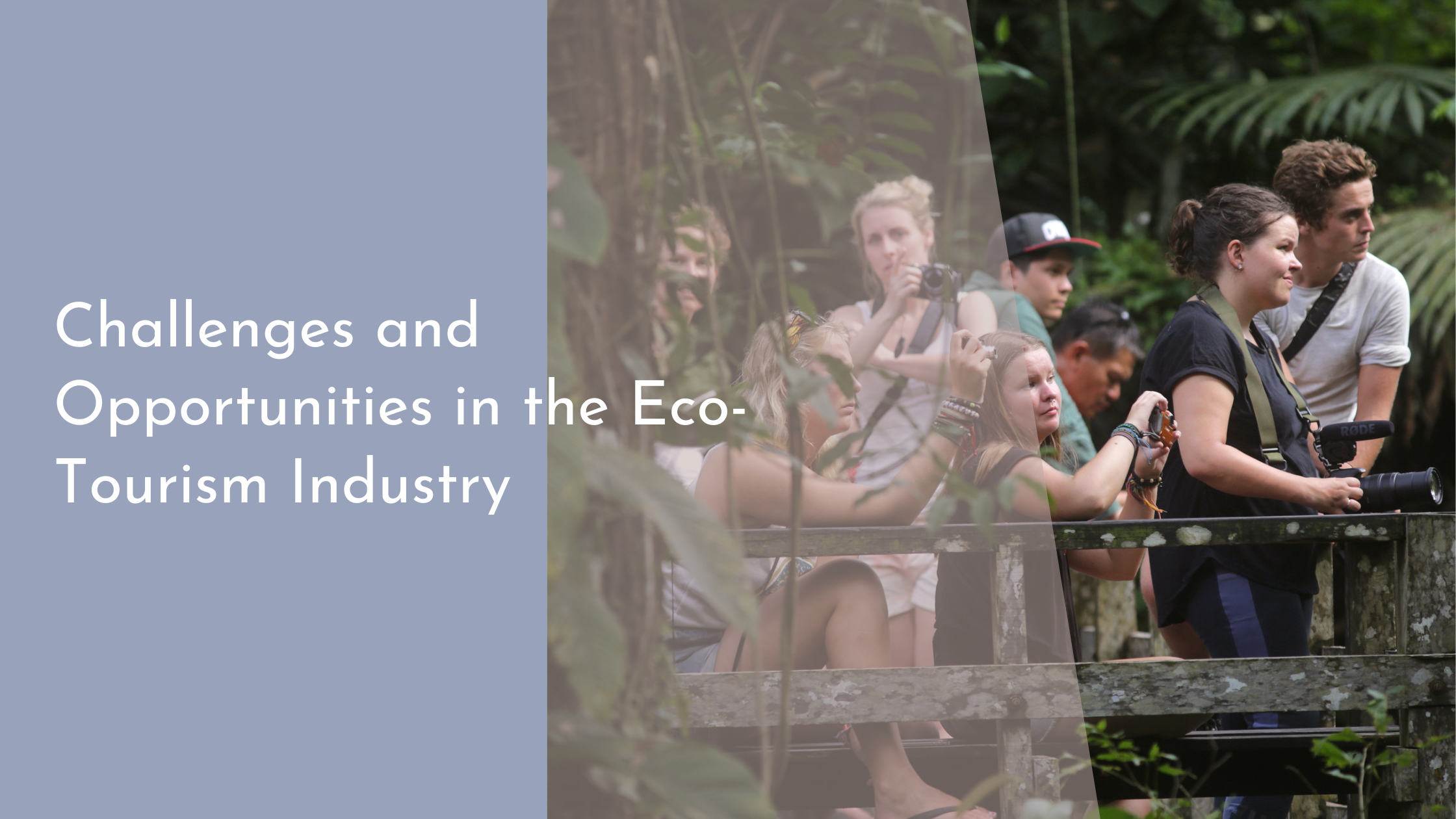Challenges and Opportunities in the Eco-Tourism Industry
Eco-tourism has emerged as a significant trend in the travel industry, driven by an increasing global awareness of environmental issues and a growing desire among travelers to reduce their carbon footprint. As travelers seek more sustainable options, eco-tourism offers an intriguing blend of adventure, cultural engagement, and environmental responsibility. This article explores the rise of eco-tourism, the challenges it faces, and the opportunities for growth and innovation in creating a greener future for the travel industry.
Understanding the Rise of Eco-Tourism
Eco-tourism is rooted in the idea of responsible travel to natural areas that conserves the environment, sustains the well-being of local people, and involves interpretation and education. Over the past two decades, there has been a noticeable increase in tourists who want to enjoy the beauty of nature while ensuring they leave a positive impact on the destinations they visit. This rise can be attributed to the heightened awareness of climate change, biodiversity loss, and the negative impacts of traditional tourism on fragile ecosystems. Furthermore, the demand for authentic experiences has led travelers to seek out destinations that offer a deep connection with nature and local cultures.
The growth of eco-tourism is also fueled by advances in technology and increased access to information, enabling travelers to make more informed decisions about their journey. Online platforms and social media have played a significant role in promoting eco-friendly destinations and sharing stories of sustainable travel practices. This digital revolution has empowered consumers to align their values with their travel choices, making eco-tourism a popular choice for conscientious travelers. As a result, the sector has seen robust growth, with an increasing number of destinations branding themselves as eco-friendly and sustainable.
Key Challenges Facing the Industry Today
Despite its growth, the eco-tourism industry faces several challenges that must be addressed to ensure its long-term sustainability. One of the primary challenges is the risk of greenwashing, where businesses falsely claim to be environmentally friendly to attract customers. This deceptive practice not only undermines the industry’s credibility but also misleads travelers who are genuinely concerned about their environmental impact. To combat greenwashing, there is a need for stringent regulations and certification systems that can verify the authenticity of eco-friendly claims.
Another significant challenge is the balance between conservation and commercialization. As eco-tourism grows, popular destinations can become overcrowded, leading to environmental degradation and a loss of the natural charm that initially attracted visitors. This overcrowding can strain local resources, disrupt wildlife habitats, and diminish the overall experience for travelers. To address this, stakeholders must emphasize sustainable practices, such as limiting visitor numbers and promoting off-peak travel periods to reduce the pressure on sensitive areas.
Opportunities for Growth and Innovation
Despite these challenges, the eco-tourism industry presents a plethora of opportunities for growth and innovation. One such opportunity lies in community-based tourism, which involves local communities in the tourism process. This approach not only provides economic benefits to locals but also ensures that tourism activities are culturally sensitive and environmentally sustainable. By supporting community-led initiatives, tourists can enjoy unique experiences while contributing to the preservation of local traditions and ecosystems.
Technological advancements offer another avenue for innovation in eco-tourism. From the use of artificial intelligence to optimize travel routes and reduce carbon emissions, to the development of apps that educate travelers about sustainable practices, technology can significantly enhance the eco-tourism experience. Moreover, virtual reality can provide immersive experiences of natural wonders, offering an alternative to physical travel and reducing the environmental impact. As the industry continues to evolve, leveraging technology will be crucial in meeting the expectations of modern travelers while ensuring sustainability.
Concluding Thoughts on a Greener Future
The future of eco-tourism is bright, with numerous possibilities to enhance its sustainability and appeal. By addressing the challenges of greenwashing and overcrowding through robust regulations and innovative solutions, the industry can continue to grow in a responsible manner. Collaborations between government bodies, businesses, and local communities will be essential in creating a balanced approach that respects both environmental and economic goals.
As the world becomes increasingly conscious of environmental issues, the eco-tourism industry stands at the forefront of promoting sustainable travel practices. By seizing the opportunities for growth and overcoming existing challenges, eco-tourism can contribute significantly to the preservation of our planet’s natural and cultural treasures. With a collective effort to prioritize sustainability, the travel industry can pave the way for a greener, more responsible future, where both nature and travelers thrive harmoniously.


